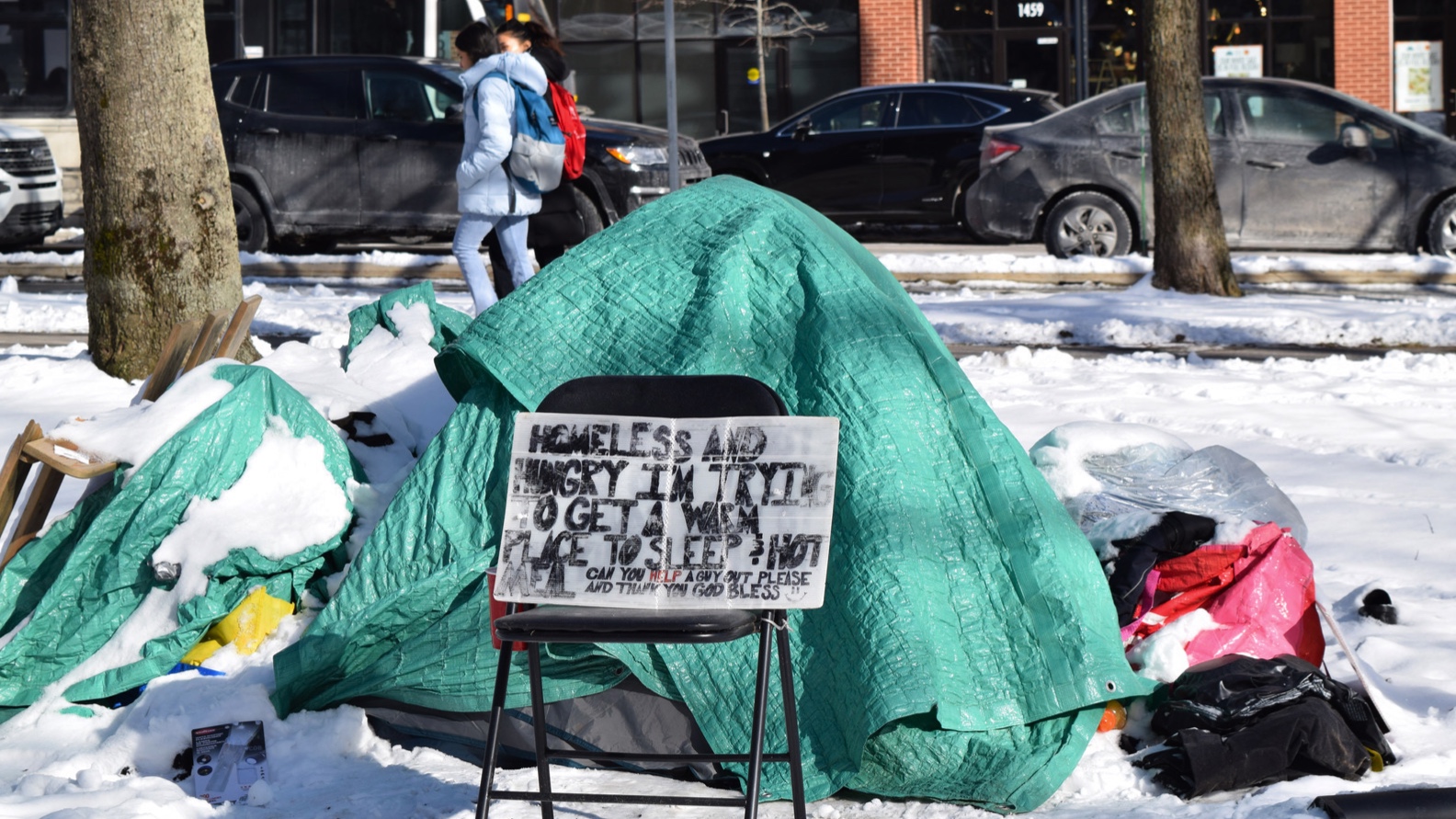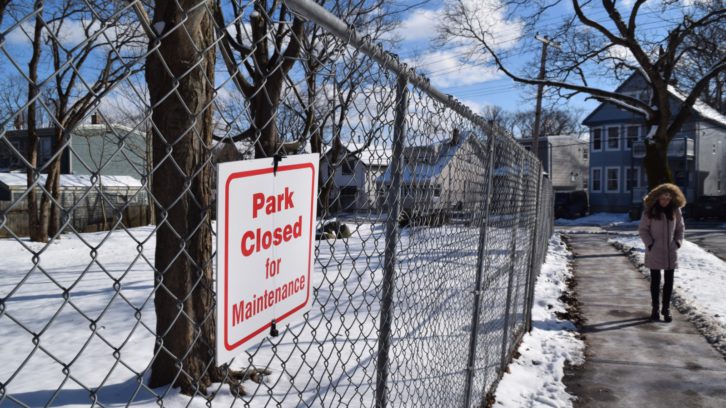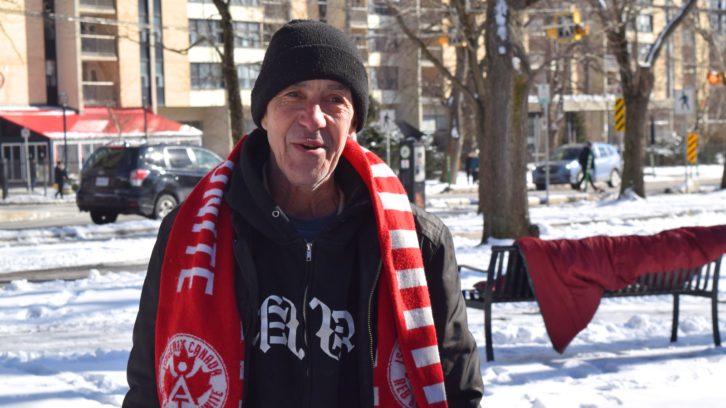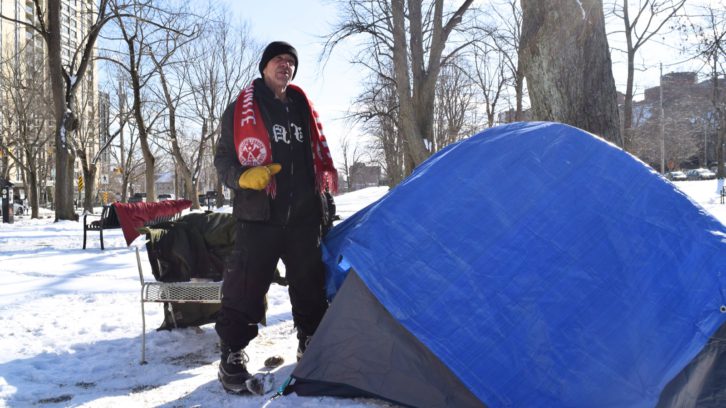Encampment evictions in Halifax may be influenced by Ontario court ruling, says lawyer
Waterloo region housing decision ‘will be looked at by people across the country’

caption
Several tents form a homeless encampment in Victoria Park in Halifax.An Ontario court ruling could potentially help challenge future encampment evictions in Halifax, says a criminal defence lawyer.
“Any positive decision anywhere in the country is helpful for any kind of case that people may need to raise here,” said Asaf Rashid, who runs a firm on Hollis St.
The Ontario Superior Court of Justice decision ruled the Region of Waterloo couldn’t evict unhoused people from their encampment since there was no room in shelters.
Although the region proved “impressive efforts to accommodate its homeless population,” Justice Michael J. Valente found it to be insufficient.
The decision was based on section 7 of the Canadian Charter of Rights and Freedoms, which states everyone has the right to life, liberty, and security. Should residents in the Kitchener, Ont., encampment be removed, Valente stated their rights would be violated.
Kitchener, Waterloo and Cambridge make up Waterloo region in southern Ontario, roughly 110 km west of downtown Toronto. It has a population of nearly 576,000 according to 2021 Census data.
“To be of any real value to the homeless population,” reads Valente’s Jan. 27 decision, “the space must meet their diverse needs …” Valente noted shelters had accessibility barriers, including a lack of accommodation for gender-diverse needs, couples, and mental and physical disabilities.
Rashid said this decision “will be looked at by people across the country — by lawyers across the country — who are dealing with similar issues because it’s on point.”
The ruling was made after the Regional Municipality of Waterloo filed an injunction to remove unhoused residents whose encampment at 100 Victoria St. N. violated its bylaw.
Kitchener “needs to follow its own policy to make sure that consultation steps are taken to find proper alternatives,” said Rashid.
Valente’s decision stated Waterloo’s bylaw became “inoperative” because the number of unhoused people outnumber accessible shelter beds.
That bylaw is similar to Bylaw P-600’s section on camping in the Halifax Municipal Act.

caption
Nick Meagher Community Park, dubbed “People’s Park,” remains fenced off on Feb. 2, after Halifax Regional Police vacated a homeless encampment in July 2022.Should Halifax hypothetically get a similar injunction to evict unhoused people from encampments, Rashid said those removed could challenge it in court with Valente’s ruling.
“It doesn’t really have any direct power over courts here,” Rashid said, “but it can be very convincing due to similar circumstances.”
Rashid, who represented protesters who rallied against the city’s decision to tear down encampments on Aug. 18, 2021, said he has found no indication that Halifax Regional Municipality (HRM) plans to do so.
HRM spokesperson Ryan Nearing said the Waterloo case has been reviewed. Nearing added HRM remains committed to an “empathy-based approach,” which includes working with partners and unhoused people to find solutions.
Such efforts include funding Downtown Halifax’s Navigator Outreach Program, an initiative that helps homeless people secure housing, employment, and obtain identification and medication.
But program co-ordinator Eric Jonsson echoed the need for more accommodating shelters.
“In a lot of cases, people sleeping outside have been timed out of these places and so they cannot be allowed to access shelter for many different reasons,” Jonsson said. Many Halifax shelters, he said, don’t accommodate diverse needs like people with partners, animals or COVID concerns.
Until adequate housing can be offered, the municipality will allow “homeless encampments to remain,” according to the HRM website.
That’s good news for Michel Babineau, a 60-year-old man who lives in Victoria Park.

caption
Michel Babineau has pitched a tent in Victoria Park in Halifax.“I thank the city of Halifax for allowing me to have my tent,” he said, adding he moved to Nova Scotia from New Brunswick on Nov. 1.
“In Moncton,” Babineau said, “my tent would be in a dumpster.”

caption
Michel Babineau talks in front of his tent in Victoria Park.About the author
Chase Fitzgerald
Chase is a fourth-year journalism student from Mississauga, Ontario.
